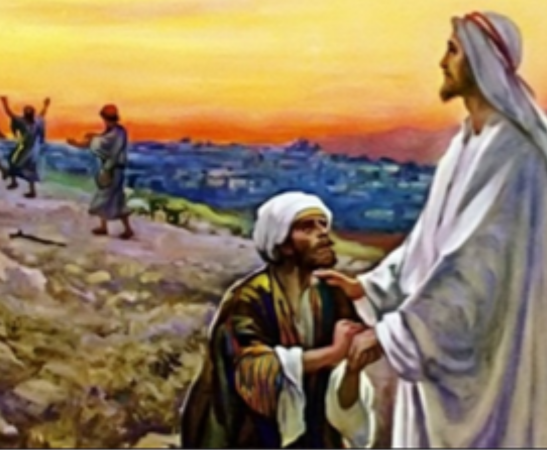Thanks, and gratitude expressed bestows dignity on both the giver and the receiver. Without it, a warm and generous gift or service falls on barren, hard ground.
There’s much to learn from today’s Gospel story. We don’t know the grateful leper’s name, just that he was a Samaritan and was one of the 10 Jesus healed and restored to health; in fact, the only one gracious enough to return and thank the Lord. In first-century Israel the term ‘leprosy’ covered any number of skin diseases and was understood to be a curse from God as a form of punishment, so lepers were thoroughly ostracised.
Jesus always broke through social prohibitions and repressive injunctions to heal and serve the person. The lepers Jesus encountered in today’s Gospel comprised Jews (Galileans) and Samaritans. Through the suffering of their disease, they discovered fraternity and friendship, breaking down the barrier or dividing hostility that ordinarily separated non-Jew from Gentile. Under the restriction of the Torah, lepers had to avoid social contact with the general population and relied on handouts to survive.
Jesus gave a command – the Torah required that healed lepers show themselves to the priests, whose responsibility it was to judge whether the ‘outcast’ should be permitted to return to society. Their obedience was richly rewarded as we know – all 10 were miraculously healed. However, in a rather jarring moment in Jesus’ life, we learn only the Samaritan returned to express his heartfelt thanks.
God has healed us and restored us in so many ways. We can strive to be like the grateful leper for he is a model of discipleship. His heart was full of praise, adoration worship and thanks.


